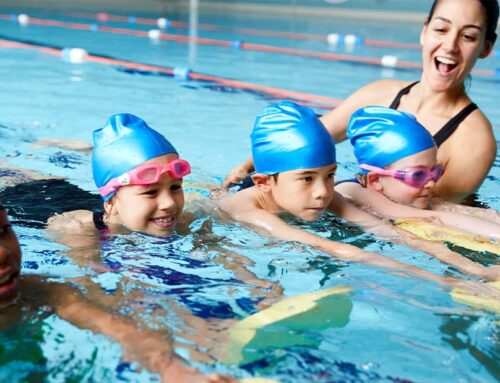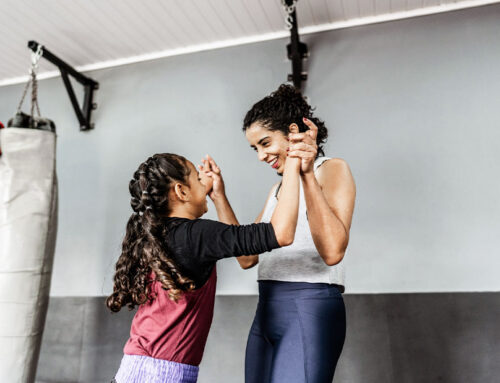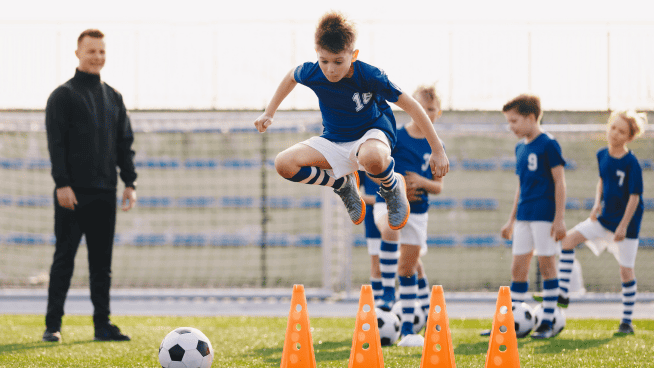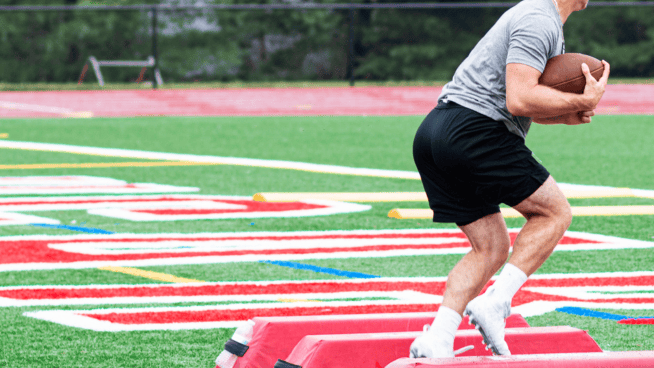How to Practice Patience with Your Youth Athlete
I think we can all agree that we live in a fast-paced, instant gratification age. From on-demand entertainment to fast food carry-out services, short is the new normal. However, fast or instant is not how youth athletics work. It takes more time for youth athletes to learn technical skills and use feedback from the coach than older athletes. Thus, parents and coaches must develop their patience in youth sports. Adults’ inability to be patient or know their role can negatively affect a youth athlete’s experience. Here are some tips parents can use to help them be patient models on and off the field.
Children Are Not Little Adults
Every child matures at a different rate, both physically and emotionally. Parents cannot expect a child, even their own flesh and blood, to respond to the world the way an adult would. They hear things differently, learn at different rates, and have different motivations and goals than their parents. For example, the adult knows that immediate feedback and self-reflection can jumpstart the journey down a path to improvement. The youth athlete is more interested in the after-game snack. Understanding children do not see the world the same way adults do is the first step in successfully guiding your youth athlete.
Which Role Do You Play?
During the season, are you the supportive parent, coach offering constant feedback, or both? The role you play affects the types of conversations you would have with the youth athlete. As the parent, you should be their biggest fan and only offer positive feedback after practices or competitions. If you are the coach, then youth athletes expect critiques and feedback to improve. Adults who are filling both roles must find a balance between being their cheerleader and offering corrections. Know which role you are in and do your best to stay in that lane for your athlete.
What Is Your Youth Athlete’s Goal?
Parents get very excited when their little athlete excels and starts to attribute the success to good genes, parenting, or both. No matter where the youth athlete ranks on the team, parents must ask themselves what their child’s goals are this season. Goals can range from becoming a faster runner, catching the ball, or only having fun and learning a team’s social norms. Once established, they should support and encourage them towards that goal and celebrate their athlete when achieved. Suppose the parent is already imagining how their child will look on camera during the National Championship Game during a U12 game. In that case, they may need to take a step back and focus on a goal that targets the child’s present performance and abilities.
Are Your Goals Realistic?
There is nothing wrong with wanting your child to excel during the season, but are your goals for them realistic? For instance, they will not secure a college scholarship during a recreational season or participating in middle school sports. Unrealistic parents can burn out a youth athlete rather than ignite a fire or passion for the sport. The most focused and dedicated athletes usually have parents that are supportive but not unrealistic with their athlete. They foster an environment that allows the athlete to develop while supported, not forced.
Be The Role Model
Our children are always watching us and will grow to mimic our actions and responses to different situations. This holds true for our athletes from a very young age. Suppose the parent or coach always explodes and criticizes during every practice and game. In that case, the athlete will most likely develop the same short fuse. Modeling appropriate reactions to frustrating or disappointing situations can guide youth athletes to develop these skills on and off the field. Few life skills can benefit a person’s long-term success in society more than patience. Teaching youth athletes to take a deep breath and problem-solve rather than have an outburst will undoubtedly have a more significant impact on their future.
As I frequently tell my own children, practice patience. Remember your role and how your actions or reaction can influence youth athlete’s perception of themselves or the sport. As they grow and develop into stronger, more mature athletes, your role and conversations will adapt as well. Until then, be mindful, be supportive, and be patient.
RECOMMENDED FOR YOU
MOST POPULAR
How to Practice Patience with Your Youth Athlete
I think we can all agree that we live in a fast-paced, instant gratification age. From on-demand entertainment to fast food carry-out services, short is the new normal. However, fast or instant is not how youth athletics work. It takes more time for youth athletes to learn technical skills and use feedback from the coach than older athletes. Thus, parents and coaches must develop their patience in youth sports. Adults’ inability to be patient or know their role can negatively affect a youth athlete’s experience. Here are some tips parents can use to help them be patient models on and off the field.
Children Are Not Little Adults
Every child matures at a different rate, both physically and emotionally. Parents cannot expect a child, even their own flesh and blood, to respond to the world the way an adult would. They hear things differently, learn at different rates, and have different motivations and goals than their parents. For example, the adult knows that immediate feedback and self-reflection can jumpstart the journey down a path to improvement. The youth athlete is more interested in the after-game snack. Understanding children do not see the world the same way adults do is the first step in successfully guiding your youth athlete.
Which Role Do You Play?
During the season, are you the supportive parent, coach offering constant feedback, or both? The role you play affects the types of conversations you would have with the youth athlete. As the parent, you should be their biggest fan and only offer positive feedback after practices or competitions. If you are the coach, then youth athletes expect critiques and feedback to improve. Adults who are filling both roles must find a balance between being their cheerleader and offering corrections. Know which role you are in and do your best to stay in that lane for your athlete.
What Is Your Youth Athlete’s Goal?
Parents get very excited when their little athlete excels and starts to attribute the success to good genes, parenting, or both. No matter where the youth athlete ranks on the team, parents must ask themselves what their child’s goals are this season. Goals can range from becoming a faster runner, catching the ball, or only having fun and learning a team’s social norms. Once established, they should support and encourage them towards that goal and celebrate their athlete when achieved. Suppose the parent is already imagining how their child will look on camera during the National Championship Game during a U12 game. In that case, they may need to take a step back and focus on a goal that targets the child’s present performance and abilities.
Are Your Goals Realistic?
There is nothing wrong with wanting your child to excel during the season, but are your goals for them realistic? For instance, they will not secure a college scholarship during a recreational season or participating in middle school sports. Unrealistic parents can burn out a youth athlete rather than ignite a fire or passion for the sport. The most focused and dedicated athletes usually have parents that are supportive but not unrealistic with their athlete. They foster an environment that allows the athlete to develop while supported, not forced.
Be The Role Model
Our children are always watching us and will grow to mimic our actions and responses to different situations. This holds true for our athletes from a very young age. Suppose the parent or coach always explodes and criticizes during every practice and game. In that case, the athlete will most likely develop the same short fuse. Modeling appropriate reactions to frustrating or disappointing situations can guide youth athletes to develop these skills on and off the field. Few life skills can benefit a person’s long-term success in society more than patience. Teaching youth athletes to take a deep breath and problem-solve rather than have an outburst will undoubtedly have a more significant impact on their future.
As I frequently tell my own children, practice patience. Remember your role and how your actions or reaction can influence youth athlete’s perception of themselves or the sport. As they grow and develop into stronger, more mature athletes, your role and conversations will adapt as well. Until then, be mindful, be supportive, and be patient.










